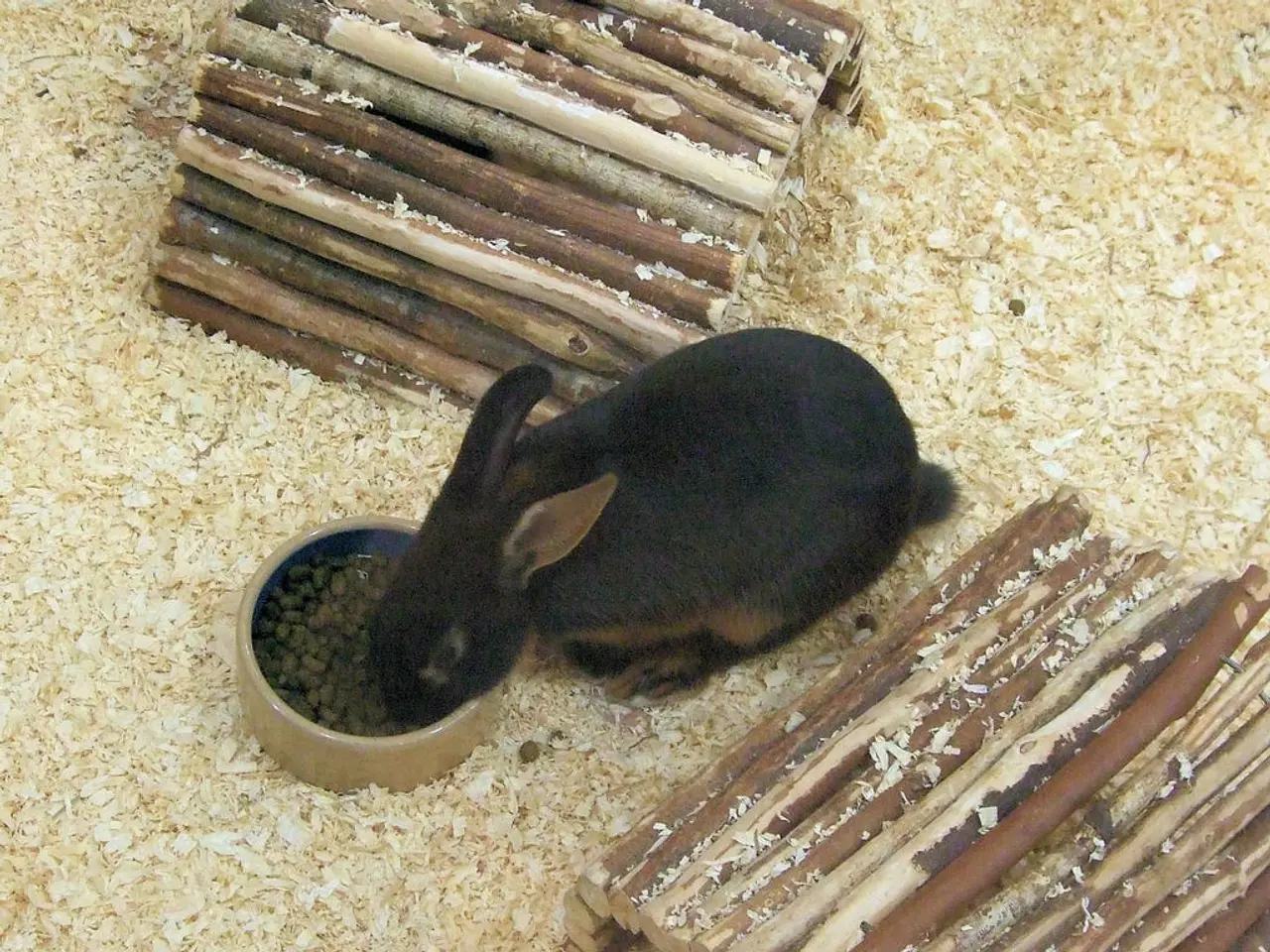Animal-borne virus mutation expands its reach
Breaking News: First Outbreak of Toledo Variant Myxomatosis Affects Field Hares in Germany
A new strain of the Myxoma virus, known as the Toledo variant (ha-MYXV), has been confirmed in field hares in Germany, marking the first official outbreak of myxomatosis in this region. The rapid and widespread spread of the virus has raised concerns among wildlife experts and the local hunting community.
The Toledo variant, a recombinant Myxoma virus strain, was first discovered in the Toledo region of Spain and has now reached North Rhine-Westphalia in 2024, spreading radially from the border of our country and the Netherlands. This new strain differs from the original Myxoma virus strains historically used for biological control of European rabbits, as it has adapted and evolved to infect hares more efficiently.
Initial studies on the viral mechanism show that a single virus component ("M159") allows ha-MYXV to grow in hare cells, which may be a key to the unusual host specificity. This unusual host shift from rabbits to hares may have substantial ecological consequences and pose challenges for wildlife disease management in the affected areas.
The infection in field hares leads to myxomatosis, characterized by swelling, skin lesions, and high mortality rates, severely impacting local hare populations. Hundreds of hares have already been affected, with presumably more undiscovered populations.
Experts strongly advise against touching dead hares and reporting discovery sites via the animal finder app to help track the spread of the virus. The Dutch Wildlife Health Centre has also advised reporting dead hares via the animal finder app.
To better trace infection pathways, authorities are setting up a digital disease registry. The virus is transmitted through direct contact and blood-sucking insects and does not pose a risk to humans or other animals.
Unusual behavior in animals, such as the absence of flight reflexes, indicates a more severe form of the virus. The Toledo variant poses a significant threat to field hares, causing them to lose their flight instinct and appetite, exhibit swellings, bleeding, and apathy, leading to death in a short time.
Initial suspicions were inconclusive, but lab tests by the State Laboratory of Schleswig-Holstein and the Friedrich-Loeffler-Institute confirmed the presence of the Myxoma virus. Dead field hares have been found in several places along the coast in Dithmarschen's marshes, including Friedrichskoog, Dieksanderkoog, and Neufelderkoog.
This case of myxomatosis in field hares differs significantly from previous occurrences with wild rabbits. The local hunting community views this as a warning sign, and experts emphasize the importance of not touching dead hares with bare hands.
[1] For more information on the Toledo variant and its impact on field hare populations, please refer to ongoing studies on its evolutionary aspects and disease dynamics.
- In the realm of science, investigations are underway to understand the evolutionary aspects and disease dynamics of the Toledo variant, which has affected field hare populations, particularly in relation to chronic-diseases such as chronic-kidney-disease and other medical-conditions.
- With the Toledo variant posing a significant threat to field hares, there is a growing need for the health-and-wellness sector to explore potential treatments or prevention methods to combat conditions like chronic-kidney-disease and other medical-conditions that may arise due to this outbreak.
- CBD, known for its various therapeutic properties, is one of the alternative substances currently being studied for its potential role in supporting the health-and-wellness of field hares, with a focus on alleviating the symptoms of chronic diseases and medical conditions caused by the Toledo variant.




